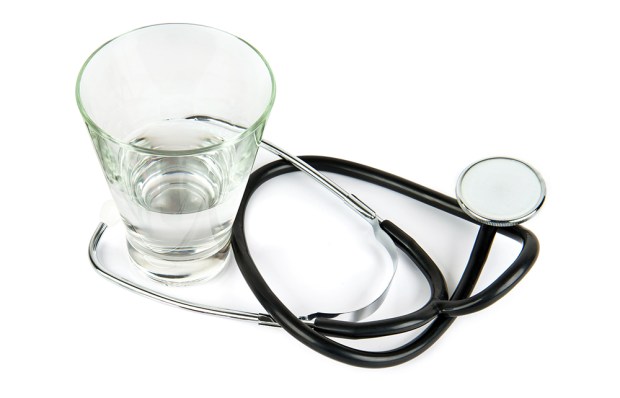I was diagnosed with prostate cancer with metastases in April 2013. It was a bit of a shock, but when the shock subsided I found I was happier than I had been for as long as I could remember. Every man in his best state is altogether vanity, says the Bible. With the dictator vanity toppled by a few carefully chosen words from a urologist, I found I was unexpectedly living in the present, savouring every moment, and genuinely happier and more alive than I had been for years. Kinder too. It is such a normal, rational reaction to being diagnosed with a fatal illness, it’s a cliché, I suppose.
They wouldn’t say how long I had left. I guessed six months to a year, but a quick trawl of the prostate cancer website chat rooms indicated I had anything up to five years. I flogged some possessions on eBay, threw my heap of letters from the taxman in the bin, told my pals to dust off their dark suits, and went around almost bursting with love and happiness. I had been asleep at the wheel for 20 or 30 years, I realised. Finally I was awake. Life had meaning and quality. Ideally, of course, one would prefer to be without both vanity and cancer, but one can’t have everything. Better two or three years fully alive than 20 or 30 aiming for immortality and missing the point of it all.
Six months went by, then a year. My cancer was assaulted with everything that the NHS had in its arsenal. As my oncologist had promised, they threw everything but the kitchen sink at it. The radiation treatments were not unpleasant and they got me out more. I enjoyed them. I thought they might scan me afterwards to see what, if anything, had been achieved. Instead my cancer’s progress was measured by regular blood tests. My PSA score remained consistently low, even negligible. The websites informed me, however, that most prostate cancers stay down for a count of nine, but after a couple of years, on average, they are usually back up on their toes swinging vicious combinations.
Another year of beatific saintliness went by. I started looking at my watch. Now we’re in the summer of 2015. People I hadn’t seen for ages expressed shock and disappointment at how well I looked. But as the leaves fell from the trees I began to sense that all wasn’t quite well with me. Yes, I was tired all the time. But fatigue is an accountable side effect of the anti-testosterone injections. Beyond a small weight loss, I had no obvious physical symptoms. Nevertheless I was afflicted by an ineffable physical and spiritual malaise that told me something had gone terribly awry.
Because my PSA scores were so consistently low, the quarterly meetings with my oncologist became unnecessary, and I saw her instead every six months. The next appointment was scheduled for the week before Christmas. In the meantime, my soul-sense that something was wrong strengthened to a certainty. That’s it, I thought. Curtains. When I visualised my next appointment, I heard my oncologist quietly telling me that my PSA score had gone through the roof, that my cancer was making its bid for power, and that henceforward I was on the slippery downward slope of chemotherapy, analgesics and saying my cheerios.
The day of my appointment finally arrived. I scrubbed up and put on a black suit and tie. Hospital renovations meant that the oncology waiting room was moved to a temporary, shabbier location, which my pessimistic state of mind interpreted as an ill omen. My many waits in the old oncology department waiting room had all had happy outcomes. This unexpected change foreshadowed a change of outcomes. At five minutes past the appointment time, I was called by a nurse and shown the new way to the examination room next to my oncologist’s office. I sat on an orange plastic chair and waited, and after about five minutes the door of her office opened and she came in and perched, as she always does, on the side of the examination table. My oncologist dresses beautifully and she always strikes me as some kind of female deity.
After a brief exchange of greetings, she came to the point.
‘Well, your PSA score is virtually nothing, still,’ she said.
I strongly expressed my disbelief and told her about my nebulous, pessimistic feelings of late. She thought it might have been a touch of flu. Then she said, again contrary to all expectations, that we could perhaps start thinking about discontinuing my treatment, and that I could have my testosterone back on a six-month trial.
That was two months ago. The feeling that I was dying evaporated that day. Today I feel so wholly well I can feel my vanity seeping back and my strange joy diminishing. It’s a shame. It really is.
Got something to add? Join the discussion and comment below.
Get 10 issues for just $10
Subscribe to The Spectator Australia today for the next 10 magazine issues, plus full online access, for just $10.
You might disagree with half of it, but you’ll enjoy reading all of it. Try your first month for free, then just $2 a week for the remainder of your first year.















Comments
Don't miss out
Join the conversation with other Spectator Australia readers. Subscribe to leave a comment.
SUBSCRIBEAlready a subscriber? Log in